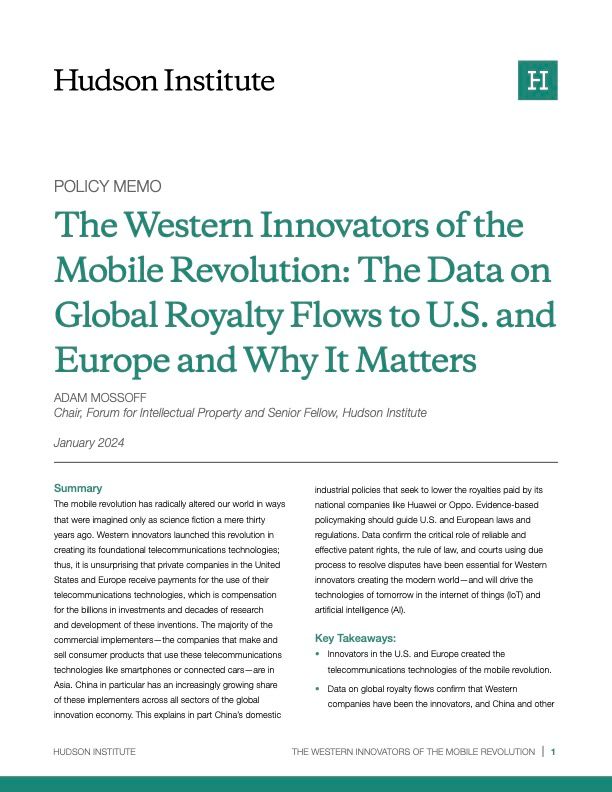Summary
The mobile revolution has radically altered our world in ways that were imagined only as science fiction a mere thirty years ago. Western innovators launched this revolution in creating its foundational telecommunications technologies; thus, it is unsurprising that private companies in the United States and Europe receive payments for the use of their telecommunications technologies, which is compensation for the billions in investments and decades of research and development of these inventions. The majority of the commercial implementers—the companies that make and sell consumer products that use these telecommunications technologies like smartphones or connected cars—are in Asia. China in particular has an increasingly growing share of these implementers across all sectors of the global innovation economy. This explains in part China’s domestic industrial policies that seek to lower the royalties paid by its national companies like Huawei or Oppo. Evidence-based policymaking should guide U.S. and European laws and regulations. Data confirm the critical role of reliable and effective patent rights, the rule of law, and courts using due process to resolve disputes have been essential for Western innovators creating the modern world—and will drive the technologies of tomorrow in the internet of things (IoT) and artificial intelligence (AI).
Key Takeaways:
- Innovators in the U.S. and Europe created the telecommunications technologies of the mobile revolution.
- Data on global royalty flows confirm that Western companies have been the innovators, and China and other Asian companies pay royalties for the use of their patented innovations.
- U.S. and European lawmakers should continue to follow evidence-based policymaking in sustaining this economic success: reliable and effective patent rights, the rule of law in stable legal institutions, and due process in courts in resolving disputes.






